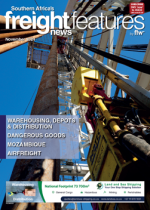There has been a notable uptick in fertiliser volumes moving out of Beira following a sluggish start to the year. According to Kevin Hutton, general manager at Beira Logistics Terminals (BLT), bulk volumes across several other commodities have also seen a steady increase. “It has been an election year, not only in Mozambique but globally, and we did experience a slowdown in activity. However, the second half of the year has seen a significant improvement with volumes increasing across the board,” Hutton said.He noted that large amounts of wheat and maize continued to be imported and transported along the Beira Corridor to Zambia and Zimbabwe, driven by an ongoing drought that has escalated demand for these essential commodities. “The crop shortages in these countries have led to increased imports to support their agricultural sectors,” he explained.He said while mineral commodities continued to move, there had been a slowdown in some minerals, with copper exports in particular down from the previous year. This, however, was expected to change as well in coming months.He highlighted the increasing competition from other regional ports such as Dar es Salaam, Lobito, Durban and Walvis Bay. "These ports are becoming more competitive and Beira needs to step up. From a freight cost perspective, shipping lines find Beira more expensive due to the limited size of vessels we can bring through here."Walvis Bay, in particular, has proven to be a formidable competitor, especially on the transport side. "Transport costs from Walvis Bay to Lusaka are now the same as Beira’s. They have the advantage of one road and one border, with no toll gates, compared to Beira's $400 toll cost per truck entering Zambia," said Hutton.In light of this, he said it was critical for stakeholders across the corridor to work together to improve competitiveness. “We must work together to address the issues around congestion and the infrastructure challenges we face. Cornelder has been very good at upgrading the terminals, but we need work done on the roads in and out of the port, while the f low of trucks through Beira also needs to be improved.” LV

